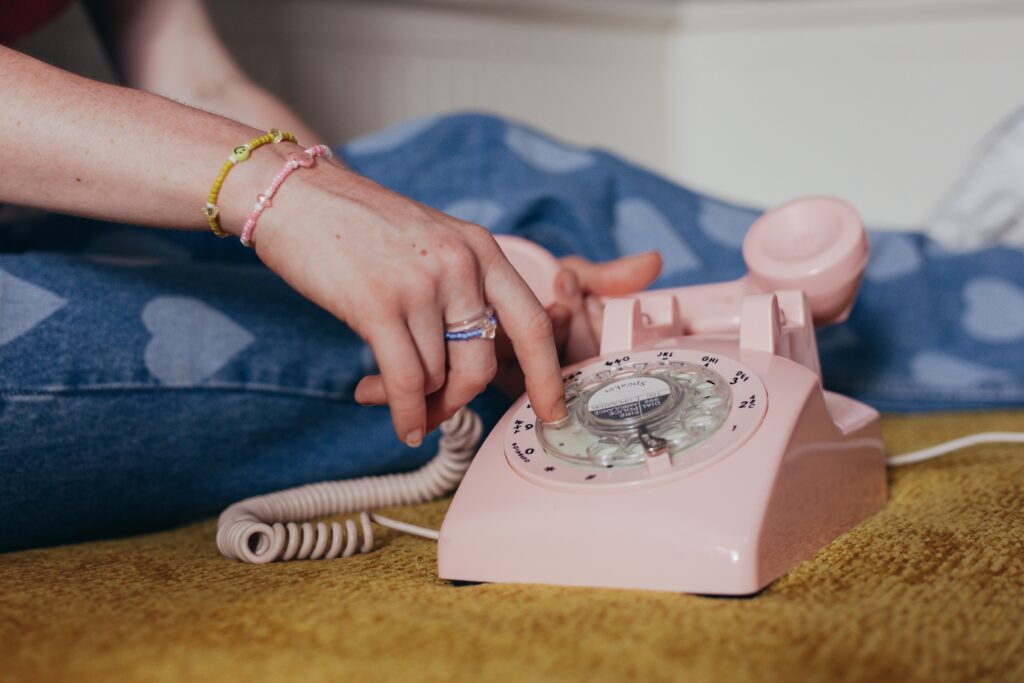I will be honest with you…my journey to finding freedom from drugs and alcohol was a long one.
But – my journey to deep and desperate substance abuse was a long one, too.
I didn’t just wake up one morning and realize I had a problem with drugs and alcohol.
My road to that realization had many turns, twists, and even – at times – what felt to be complete dead ends.
But lucky for me, the total dead end never came.
Lucky for me, I’m here today because I finally found the path I needed to help me complete my recovery process.
I finally found the freedom I had longed for but just could never seem to fully grasp.
Addiction Treatment Programs: “They’re Not for Me.”
For years, I didn’t want to believe that my problems with substance abuse were significant enough to warrant any sort of real addiction medicine or addiction treatment.
I was convinced that I could manage my substance abuse and mental health issues with alternative therapies and a lot of self-discipline.
Formal treatment and addiction treatment programs weren’t for me. I didn’t want or need anything that had to do with group therapy programs, mental health services, support groups, individual therapy, or any sort of substance abuse treatment program that involved someone telling me what to do or making me talk about my past.

And as far as an inpatient treatment program or other sort of residential treatment programs? No way! In my mind, those types of programs were for people who had serious drug addiction problems or horrible eating disorders, or needed a partial hospitalization program.
An inpatient treatment program sounded like a place where I’d lose all my autonomy and be surrounded by people who had truly hit rock bottom.
Inpatient treatment was way too hardcore for someone like me.
Instead, I developed my own treatment philosophy. I would continue to cut back on my drinking and drug use and be more aware of how much and how often I was doing both.
I would treat myself and everything would be fine.
And the truth is, it was…for a while.
I’d spend a few weeks, steering myself away from substances, get more sleep, eat better and even start an exercise program. My job performance would improve, my relationships would stabilize, my skin would clear up and I’d even usually lose a few pounds.
And I would be left thinking, “See? All it takes is some self-control. Stop being so weak and just do it.”
But, as most people who struggle with substance abuse know, “just do it” only worked for so long.
And every time it didn’t work, I would be back where I had started, with one exception.
Every time I’d go back to drinking or drugs my problem would get a little worse.
For years I did this dance with myself. For years, I’d give myself a second, third, or thirtieth chance.
And then finally, it just wasn’t funny anymore.
Finally, I’d had enough.
I wanted a change and I wanted to find a program that would help me make it once and for all.
For me, that change was an intensive outpatient program that gave me the road map to where I am today.
What is an Intensive Outpatient Treatment Program?
Intensive outpatient treatment program (also known as IOP Program) is a structured and comprehensive addiction treatment program designed to provide individuals with intensive support and care as they begin the challenging journey to a life free of substance use. abuse.
These programs will provide patients with everything from early intervention services and medical treatment to support groups and individual therapy, all while allowing them to maintain their daily routines and responsibilities and not live at the treatment center.
Most outpatient treatment centers that are referred to as “intensive” offer a level of care that falls between inpatient/residential treatment and traditional outpatient therapy.
With a focus on flexibility and personalized treatment, IOPs are tailored to meet the specific needs of individuals seeking addiction recovery.
At the core of an intensive outpatient treatment program is the commitment to providing individuals with a supportive and therapeutic environment to address their addiction and any mental health issues they may be experiencing (and even ones they don’t realize they have.)
These programs typically involve a combination of individual therapy, group therapy, support groups, educational sessions, and various evidence-based modalities.
The treatment team – consisting of addiction specialists, mental health services administration, therapists, and medical professionals – collaborates closely to develop a truly personalized treatment plan for each participant.
One of the key features of an IOP is the flexibility it offers.
Participants attend therapy sessions and treatment activities for several hours each day, several days a week, sometimes more or less based on their needs, their timeline, and the severity of their substance use and mental health needs.
This type of flexibility allows individuals to continue meeting their work, family, and personal obligations while also receiving the support and treatment they would normally get in an inpatient treatment program.
The program structure provides a sense of continuity, as individuals receive ongoing care and support while gradually transitioning back to their daily lives.
Who is Best Served by an Intensive Outpatient Treatment Program?
Intensive outpatient treatment programs are suitable for individuals who do not require 24/7 supervision but still need a higher level of support than what traditional outpatient therapy or regular support groups can offer.They are particularly beneficial for those who have completed a higher level of care, such as inpatient treatment, or for individuals with a stable living environment and a strong support system that can give them the home help they need versus living in a residential treatment program instead.

With a strong focus on personalized care and ongoing support, intensive outpatient programs play a vital role in helping individuals achieve lasting recovery from addiction.
Success at an Intensive Outpatient Program: 5 Key Ingredients that Made Me Substance Free
As I reflect on my final journey toward recovery in an intensive outpatient program, I can think of 5 factors the treatment center had that were the keys that allowed me to break free from the chains of addiction and rediscover my true self.
1. A Supportive Community
Participating in an intensive outpatient care program provided me with a supportive community of individuals who understood my struggles and offered empathy without judgment.
For so long I thought I didn’t need other people to help me with my journey toward sobriety. I thought that other people would just “get in my way” or overly criticize my decisions or try to talk me out of doing what I wanted to do.
And I was so wrong.
Through group therapy sessions and shared experiences, the support groups and therapy sessions with others helped me realize that I was not alone on this journey. The bonds I formed with fellow participants became a vital source of encouragement, motivation, and accountability.
2. Flexibility and Independence
One of the aspects I appreciated most about intensive outpatient care was the flexibility it offered.
When I began looking for an outpatient treatment program, I had just landed my dream job. It was unlikely I could ask for time off to enroll in an inpatient treatment program and I was so excited about the job I didn’t want to do anything to jeopardize it.
Unlike inpatient programs, enrolling in an intensive outpatient program meant I was able to live at home, maintain my work commitments, and attend therapy sessions during scheduled hours.
This allowed me to apply the skills and coping mechanisms I was learning to real-life situations during my times in treatment, making the transition to sobriety smoother and more sustainable.
3. Comprehensive Treatment Approach
Intensive outpatient care provided me with a comprehensive treatment approach that addressed all aspects of my addiction.
As many people who struggle with addiction can attest to, I knew I had struggled my whole life with anxiety. Alcohol and drugs had been my self-medicative way of dealing with that.
The intensive outpatient program that I chose helped me realize that I couldn’t treat my substance abuse problem without also dealing with my anxiety.
Alongside individual and group therapy, I had access to various therapeutic modalities, including cognitive-behavioral therapy (CBT), dialectical behavior therapy (DBT), and holistic practices such as mindfulness and yoga. This holistic approach helped me understand the underlying causes of my addiction, develop healthy coping strategies, and rebuild my self-esteem.
4. Continuity of Care
One of the significant advantages of intensive outpatient care was the continuity of care it offered.
Now, years after completing the program, I still have access to ongoing support, including individual counseling, relapse prevention strategies, and access to community resources.
This continuity has allowed me to maintain a strong support system and navigate potential challenges that can still arise during my recovery journey.
Not only that, but being a part of this community also allows me a chance to serve others as well. I’ve sat in many rooms with others who are dealing with the same struggles I have had and can offer them support and counsel in the same way they have offered it to me.
5. Integration into Everyday Life
Intensive outpatient care facilitated the seamless integration of newfound skills and strategies into my everyday life.
I had the opportunity to practice healthy habits, coping mechanisms, and communication skills all within my regular environment. This integration fostered a sense of empowerment and self-confidence, as I began to see the positive impact of my efforts in various aspects of my life.

Better Days are Ahead…Pick Up the Phone Today
If you are beginning to think that an intensive outpatient treatment program might be the right solution for you or someone you love, pick up the phone today and call Better Days.
Better Days’ facility is located in the heart of sunny Southern California in a city that’s known for its beautiful weather and upbeat atmosphere. This makes it the ideal location to begin your healing process.
The facility itself is located in a convenient spot, near many different amenities.
It’s time you start the final leg of your recovery journey. It’s time you take the road less traveled.
It’s time for Better Days.


